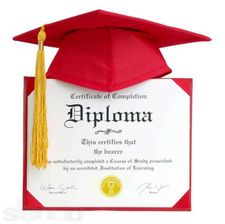Andreja Rojko
ECPE European Center for Power Electronics e.V.
DOI:
https://doi.org/10.3991/ijim.v11i5.7072
Keywords: Industry 4.0, Cyber-Physical Systems, Enterprise-Resource-Planning, Manufacturing Execution System
Abstract Industry 4.0 is a strategic initiative recently introduced by the German government. The goal of the initiative is transformation of industrial manufacturing through digitalization and exploitation of potentials of new technologies. An Industry 4.0 production system is thus flexible and enables individualized and customized products. The aim of this paper is to present and facilitate an understanding of Industry 4.0 concepts, its drivers, enablers, goals and limitations. Building blocks are described and smart factory concept is presented. A Reference Architecture Model RAMI4.0 and role of standardization in future implementation of Industry 4.0 concept are addressed. The current status of Industry 4.0 readiness of the German companies is presented and commented. Finally it is discussed if Industry 4.0 is really a disruptive concept or simply a natural incremental development of industrial production systems.
References
[1] Industrial Internet Consortium, Industrial Internet Reference Architecture,Version 1.7, 2015.
[2] Presentation at the French Embassy in the Germany, “Industry of the future“, 2015. Available at. http://www.ambafrance-de.org/Vorstellung-des-neuen-franzosischen-PlansIndustrie-du-Futur-in-der-Botschaft. Last accessed: 24.11.2016.
[3] The State Council of the People's Republic of China, “Made in China 2025“, Available at: http://english.gov.cn/2016special/madeinchina2025/. Last accessed: 24.11.2016.
[4] Thomas Bauernhansl, Jörg Krüger, Gunther Reinhart, Günther Schuh: Wgp-Standpunkt Industrie 4.0, Wissenschaftliche Gesellschaft für Produktionstechnik Wgp e. v., 2016.
[5] U.R. Dhar, “Flexible manufacturing systems: Major breakthrough in manufacturing management“, Elsevier Engineering Management International, Volume 5, Issue 4, May 1989, Pages 271-277.
[6] Yoram Korena, Moshe Shpitalnib, “Design of reconfigurable manufacturing systems“, Elsevier Journal of Manufacturing Systems, Volume 29, Issue 4, October 2010, Pages 130–141. https://doi.org/10.1016/j.jmsy.2011.01.001
[7] N. G. Nayak, F. Dürr and K. Rothermel, “Software-defined environment for reconfigurable manufacturing systems, “ Internet of Things (IOT), 2015 5th International Conference on the, Seoul, 2015, pp. 122-129.
[8] B. C. Morello, B. Ghaouar, C. Varnier and N. Zerhouni, “Memory tracking of the health state of smart products in their lifecycle,“ Industrial Engineering and Systems Management (IESM), Proceedings of 2013 International Conference on, Rabat, 2013.
[9] SAP SE, Available at: http://go.sap.com/corporate/en.html. Last accessed: 24.11.2016.
[10] A. Bratukhin, T. Sauter, “Functional Analysis of Manufacturing Execution System Distribution,“ IEEE Transactions on Industrial Informatics, Vol. 7, No. 4, Nov. 2011, pp. 740- 749. https://doi.org/10.1109/TII.2011.2167155
[11] Referenzarhitekturmodell Industrie 4.0 (RAMI4.0), VDI/VDE Gesellschaft Mess- und automatizierungstechnik, April 2015.
[12] Verband Deutscher Maschinen- und Anlagenbau. Industrie 4.0 readiness, Cologne Institute for Economic Research (IW) and Aachen University 2015.
[13] SEW EURODRIVE: ‘Industrie 4.0 – Unsere Vision der Lean Sm@rt Factory’. Available at: https://www.sew-eurodrive.de/unternehmen/ihr_erfolg/zukunftsthemen/industrie_40/ industrie_40.html. Last accessed: 30.11.2016.
[14] SEW EURODRIVE: ‘Industrie 4.0’ (German). Available at: http://video2.spiegel.de/flash/12/41/1701421_1024x576_H264_HQ.mp4. Last accessed: 30.11.2016.
[15] IMPULS Foundation of the German Engineering Federation (VDMA), Industrie 4.0 readiness check tool for companies, Available at: https://www.industrie40- readiness.de/?lang=en. Last accessed: 24.11.2016.
[16] K. Zhou, Taigang Liu and Lifeng Zhou, “Industry 4.0: Towards future industrial opportunities and challeng

